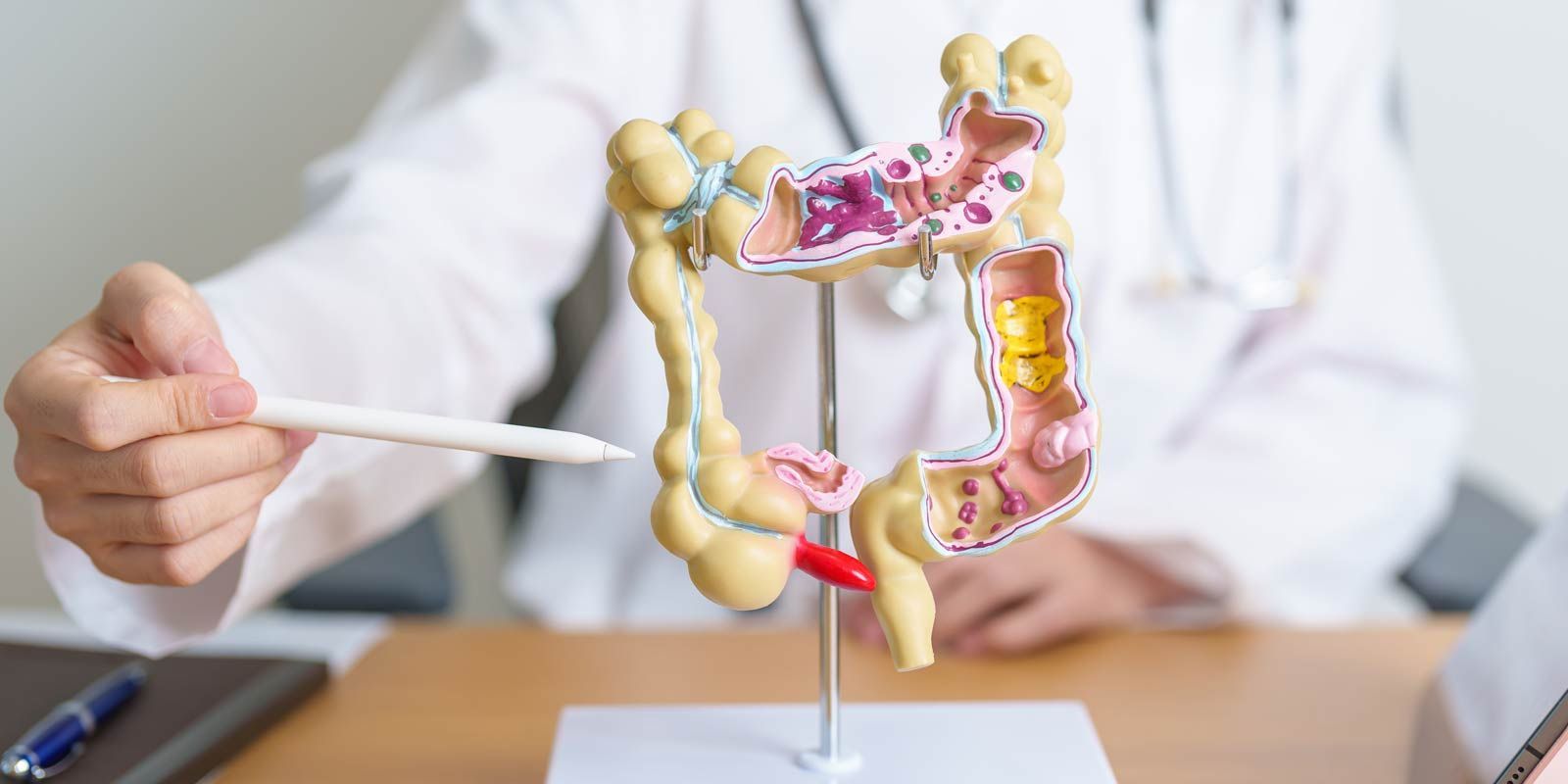Diverticulosis Remedies NYC - Dr. Alicia Armitstead
While diverticulosis may not immediately impact one's health, neglecting it can lead to more severe conditions such as diverticulitis, bleeding, strictures, bowel obstruction, and fistulas. Individuals can greatly reduce the risk of these complications by taking proactive steps towards managing diverticulosis and maintain better digestive health.
-Dr. Alicia Armitstead
Holistic Treatments for Diverticulosis at the Healing Arts NYC Health and Wellness Center in Manhattan NY 10017 and Connecticut
What is Diverticulosis?
Diverticulosis is characterized by the formation of small, bulging pouches (diverticula) in the digestive tract's lining. These pouches are most commonly found in the lower part of the large intestine, known as the colon. Diverticulosis is often asymptomatic and may be discovered incidentally during routine screenings or investigations for other conditions.
As people age, the likelihood of developing diverticulosis increases, especially for individuals over 50. Factors contributing to the development of diverticulosis include a low-fiber diet, which can lead to constipation and increased pressure within the colon. This pressure can cause weak spots in the colon wall to bulge out, forming diverticula.
While most individuals with diverticulosis do not experience symptoms, some may experience mild discomfort such as bloating, abdominal pain, or changes in bowel habits. If the diverticula becomes inflamed or infected, the condition progresses to diverticulitis, which can present more severe symptoms and complications.
To manage and prevent diverticulosis, it is recommended to increase dietary fiber intake through fruits, vegetables, and whole grains. Staying hydrated and maintaining regular physical activity can also help promote healthy bowel movements and reduce the risk of complications. Regular medical check-ups are important for early detection and proper management of diverticulosis.
The Difference Between Diverticulosis and Diverticulitis
Diverticulosis and diverticulitis are related but distinct conditions that affect the colon. They are often confused due to their similar names and the fact that both involve the formation of small pouches in the colon wall. However, the key differences lie in the presence of inflammation and symptoms.
Diverticulosis refers to the presence of small, bulging pouches (diverticula) in the lining of the large intestine. These pouches are typically harmless; most people with diverticulosis experience no symptoms.
It is usually discovered incidentally during screenings or exams for other health issues. The primary causes of diverticulosis include a low-fiber diet, aging, and increased pressure in the colon, which leads to the formation of these pouches.
On the other hand, diverticulitis occurs when one or more of these diverticula become inflamed or infected. Infection can lead to a range of symptoms, such as significant abdominal pain (often on the lower left side), fever, nausea, changes in bowel habits (such as constipation or diarrhea), and sometimes even more severe complications like abscesses, perforation of the colon wall, or peritonitis. Diverticulitis requires doctor attention and can often be managed with antibiotics, dietary changes, surgery in more severe cases, and holistic treatment plans.
In summary, diverticulosis is the presence of diverticula without inflammation or infection, typically without symptoms. Diverticulitis, however, involves inflammation or infection of the diverticula, leading to more severe and symptomatic conditions requiring medical treatment.
Causes of Diverticulosis
The exact causes of diverticulosis are not fully understood, but several factors are believed to contribute to its development. Here are some of the key factors:
- Low-Fiber Diet: One of the most significant risk factors is a diet low in fiber. Fiber helps to add bulk to stools and facilitates easier passage through the colon. A lack of fiber can lead to constipation, which increases pressure in the colon, resulting in the formation of diverticula.
- Aging: The risk of developing diverticulosis increases with age. As people get older, the walls of the colon tend to weaken, making it easier for diverticula to form.
- Increased Pressure in the Colon: Straining during bowel movements, often due to constipation, can raise the pressure within the colon. Over time, this increased pressure can cause weak spots in the colon wall to bulge out, forming diverticula.
- Genetics: Diverticulosis may have a hereditary component. If you have a family history of the condition, you might be at a higher risk of developing it.
- Lack of Exercise: A sedentary lifestyle is also associated with an increased risk of diverticulosis. Regular physical activity can help maintain healthy bowel movements and reduce the risk of pressure build-up in the colon.
- Obesity: Being overweight or obese can contribute to increased colon pressure and is considered a risk factor for diverticulosis.
- Smoking: Some studies suggest that smoking may increase the risk of diverticular disease, including diverticulosis and diverticulitis, although the exact mechanisms are not well understood.
- Certain Medications: Long-term use of certain medications, such as nonsteroidal anti-inflammatory drugs (NSAIDs) and steroids, may increase the risk of developing diverticulosis.
While these factors can contribute to the development of diverticulosis, it's important to note that not everyone with these risk factors will develop the condition. Maintaining a healthy fiber-rich diet, staying hydrated, exercising regularly, and avoiding unnecessary strain during bowel movements can help reduce the risk.
Medical Vs. Dr. Armstead's Holistic Treatment Strategies for Diverticulosis
The medical community and holistic practitioners often approach the treatment and management of diverticulosis with different philosophies and methods. Here's a comparison of how each may tackle the condition:
Medical Community Approach
- Stool Softeners: These may be prescribed to prevent straining during bowel movements.
- Pain Relievers: Over-the-counter pain medications like acetaminophen may be suggested to alleviate discomfort.
- Antibiotics: Although more relevant for diverticulitis, antibiotics may be prescribed if there is any sign of inflammation or infection.
- Regular check-ups and screenings such as colonoscopy might be recommended to monitor the condition and ensure that it has not progressed to diverticulitis.
- Surgical Intervention: When complications arise or diverticulosis leads to recurrent diverticulitis, surgical removal of the affected portion of the colon may be necessary.
Dr. Armitstead's Holistic Practitioner Approach
- Whole Foods Diet: Emphasis is placed on a diet rich in whole foods, organic produce, and natural sources of fiber.
- Elimination of Processed Foods: Avoiding artificial additives, preservatives, and refined sugars is often recommended.
- Probiotics: Use probiotic supplements or foods like yogurt and kefir to maintain healthy gut flora.
- Herbal Remedies and Whole Food Supplements supplement the diet and provide missing nutrients.
- Herbal Teas and Supplements: To soothe the digestive tract, herbal remedies such as slippery elm, marshmallow root, and Aloe Vera may be used.
- Omega-3 Fatty Acids: Fish oil supplements are often recommended for their anti-inflammatory properties.
- Exercise: Regular physical activity is encouraged as it supports overall digestion and helps maintain healthy bowel function.
- Stress Management: Dr. Armitstead may focus on reducing stress through yoga, meditation, and mindfulness, as stress can exacerbate digestive issues.
Key Differences and Integration
The primary difference between the two approaches lies in their underlying philosophies. The medical community often focuses on evidence-based interventions, including medications or surgical methods to manage diverticulosis and prevent complications. These treatments aim to provide measurable and immediate relief or prevention.
Dr. Armitstead, on the other hand, emphasizes a more integrative and preventive approach. They concentrate on overall lifestyle changes, natural remedies, and addressing the body's balance as a whole. This approach often includes dietary adjustments and a broader focus on mental and emotional well-being.
Diverticulosis Left Untreated
If diverticulosis is left untreated, it's important to understand that the condition is often asymptomatic and may not cause immediate problems. However, neglecting to manage diverticulosis could potentially lead to complications over time. Here are some possible outcomes of untreated diverticulosis:
- Progression to Diverticulitis - One of the most significant risks is that diverticulosis can progress to diverticulitis, where the diverticula becomes inflamed or infected. Diverticulitis can cause severe abdominal pain, fever, nausea, and changes in bowel habits. If not treated, diverticulitis can lead to more serious complications such as abscesses, perforations in the colon, and systemic infections like sepsis.
- Chronic Symptoms - Although diverticulosis is typically asymptomatic, some people may experience chronic symptoms such as mild abdominal discomfort, bloating, and irregular bowel movements. These symptoms can become persistent if the condition is ignored and not managed through dietary and lifestyle changes.
- Bleeding - In some cases, diverticulosis can lead to bleeding from the diverticula. While this is relatively rare, it can result in significant blood loss and anemia, necessitating medical intervention.
- Formation of Strictures - Chronic inflammation, even if mild and unnoticed, can eventually lead to the formation of strictures (narrowing of the colon). This can further complicate bowel movements and may require medical procedures to correct.
- Increased Risk of Colon Obstruction - As diverticula increase in number or if inflammation causes significant swelling, there may be an increased risk of partial or complete bowel obstruction. This is a serious condition that often requires surgical intervention.
- Fistula Formation - Though rarer, untreated diverticulosis can result in the formation of fistulas—abnormal connections between the colon and adjacent organs such as the bladder or vagina. These connections can lead to severe and recurrent infections.
- Lifestyle Impact - Ignoring diverticulosis means neglecting the necessary dietary fiber and hydration to maintain overall digestive health. This can contribute to a broader range of gastrointestinal issues, including chronic constipation and a generally unhealthy digestive system.
- Proactive Management - While diverticulosis may not always necessitate aggressive treatment, proactive management is crucial. Incorporating a high-fiber diet, staying well-hydrated, exercising regularly, and avoiding smoking can significantly reduce the risk of complications.

Contact Dr. Alicia Armitstead to Learn More about Holistic Treatment Options for Diverticulosis
While diverticulosis may not immediately impact one's health, neglecting it can lead to more severe conditions such as diverticulitis, bleeding, strictures, bowel obstruction, and fistulas. Individuals can greatly reduce the risk of these complications by taking proactive steps towards managing diverticulosis and maintain better overall digestive health.
Please contact us today!
Additional References
- Diverticulosis and Diverticulitis - Medline Plus
- Diverticulosis Information - Mount Sinai




